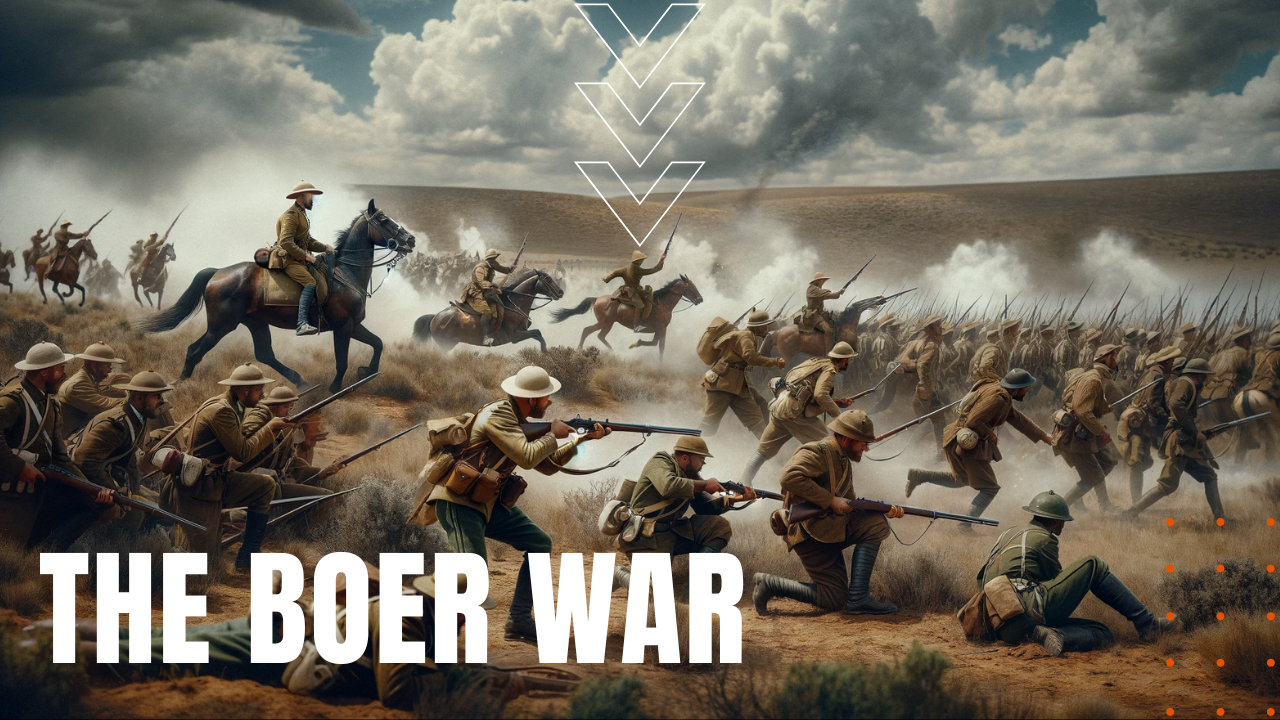The Boer War

Founding the republics of Transvaal and the Orange Free State—collectively known as the South African Republic or SAR—after the British took possession of the Dutch possession of Cape Colony South Africa in 1806, the independent-minded Boer republics lived in relative peace with the British until gold and diamonds were discovered within SAR territories in 1867. An invasion of gold hungry, English-speaking Uitlanders or “Outlanders” naturally followed, which led to rising tensions among the Boer, leading the SAR to issue an October 9th, 1899 withdrawal ultimatum of all Uitlanders from their territories, along with the withdrawal of British troops amassed along their borders.
Shift in Tactics
Three days later, after the British rejected the ultimatum, Boer forces invaded Cape Colony and Natal, followed by the siege of Kimberley, Mafeking and Ladysmith in December of 1899. Early in the war, British tactics which had generally led to quick victories over opposing armies proved disastrously ineffective against the guerilla-style tactics of Boer commandos, whose use of modern rifles and smokeless powder allowed them to snipe at British infantry units before retreating from retaliation by British set-piece artillery.
Guerrilla Warfare
Like the Vietnam War of the 20th century, the SAR’s 88,000-man army used their knowledge of the land combined with highly mobile strike tactics to frustrate British attempts at regional dominance. Led by such outstanding SAR generals as Louis Botha, Jan Smuts and Christiaan de Wet, the British finally gained an upper hand by mid June of 1900, in large part due to an overwhelming buildup of troop strength that toped out at some 400,000 soldiers.
Brutal Tactics
For the next 18 months to come, the British occupiers of the annexed republics of Transvaal and the Orange Free State were frustrated by continued and persistent guerrilla strikes by Boer resistance fighters, leading the British to undertake a a seek-and-destroy strategy against evasive Boer guerrilla units, at the same time imprisoning family members of Boer fighters in concentration camps. By early 1902, Boer resistance had been thoroughly put down, leading to a May 31st signing of the Peace of Vereeniging (ver en a hang) , which formally ended hostilities with the defeated Boer resistance, making the Boer War, yet another hard-fought victory during the high water years of British imperialism.
